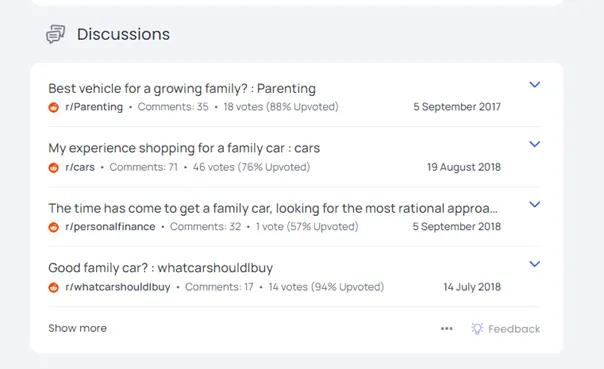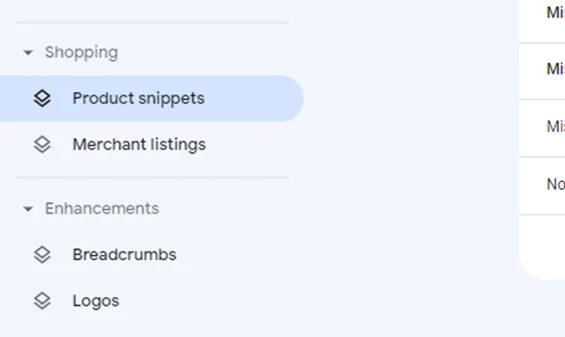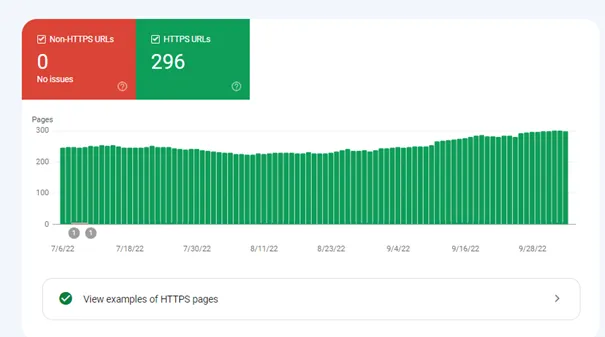If August wasn’t busy enough with the helpful content update and the search engine’s international outage, September brought a double update, with back-to-back core and product review algorithm updates beginning just three days after the Helpful Content Update (HCU) finished. On top of all of that, Google also released new, updated reports in Search Console. It has been a busy month at Google!
(September was also Google’s 24th birthday, so ?happy birthday Google?, our favourite Gen Z search engine!)
Helpful Content Update Completes Roll Out
As we covered last month, Google announced that the Helpful Content Update (HCU) would be rolling out – a ranking update that made sure results were written for people, not for search engines.
The HCU rollout was complete as of September 9th.
Google Rolls Out September Core Algorithm Update
On the 12th of September, Google’s Search Central Twitter account announced that a core algorithm update had started rolling out. On the 26th of September, the roll-out was complete.
Today we released the September 2022 core update. We'll update our ranking release history page when the rollout is complete: https://t.co/sQ5COfdNcb
— Google Search Central (@googlesearchc) September 12, 2022
And, many people (well, those who tweeted) were very vocal about it, given that the core update rolled out just three days after the Helpful Content Update finished rolling out, meaning there was very little breathing room between updates.
For many, the September core update was a lot less significant than its predecessor, the May core update. Tracking tools, like the SEMrush Sensor which runs like a seismometer, showed lower volatility than expected. However, we’ve seen some shifts in keyword rankings, in particular for those within IT and communications.
As with any core update, Google always gives the same advice if you find that you’ve been impacted by an update. The most important thing to remember is to not make knee-jerk changes to your site if you see keyword rankings drop – we would always advise to monitoring and letting the dust settle and the SERPs stabilise. Once it has, you can review the quality of the content at hand.
‘Search On’ 2022 – A Round-Up
On September 28th, Google premiered a whole host of new features to search in their now annual Search On event. There’s so much we could cover, but here are the important B2B updates!
- Discussions and forums will now have their own section in some search results. Say you want to find out what the best car for a growing family is, Google might show you results from a Reddit thread, Quora or another forum. Brave, a privacy-first search engine that is built on a Chrome base, has been doing something similar for a while now, so it makes sense for Google to roll this out!

- News translations. For major events that happen across the world, the most authoritative voices are often the ones on the ground speaking in the local language. To help these authoritative voices stand out, Google is auto-translating certain news stories to help searches to get the most accurate news from the people directly affected.
- The ‘shop’ prefix. Rolling out initially in the US, when you search “shop” followed by the item you want, Google will show you a visual feed of products, reviews, and inventories of that product. This allows you to make a more informed choice about the specific product or item that you’re looking for.
- Multisearch is expanding. Multisearch is Google’s way of describing searching in a combination of ways (e.g. text and imagery). Google Lens, which has evolved for a fair few years now, uses advanced machine learning and AI image identification to help you to find items with just your camera, voice, or music.
There are a whole host of other updates, so check them out here.

Another One: Google Rolls Out September Product Reviews Update
Launched on the 20th of September, Google announced another Product Reviews update, which finished rolling out with the core update on the 26th of September.
This is now the fifth product reviews update Google has made us aware of. As Google themselves put it, “we know people appreciate product reviews that share in-depth research, rather than thin content that simply summarizes a bunch of product”. And, as affiliate marketing is now such a dominant way for people to have ‘side hustles’, Google wants to make sure that people reviewing the product are doing so accurately and are still considering the flaws of each product.
Google began rolling out these kinds of updates in April 2021. They know that consumers are increasingly turning to search to compare a variety of products, especially high-ticket items, to help make an informed decision. The product reviews updates should reward those who write or talk about products in a well-researched way, show the product off in-depth, discuss both the good and bad features of a product, as well as provide information relating to key decision-making factors for the product in question.
If you are impacted by any product review updates, then you should revisit the content that has been hit the most. Google lists a set of questions to ask yourself here that you can use to help guide your product reviews. And remember that most of all, you should be writing content that is helpful to a user, not led by your financial needs.

New Search Console Merchant Listings Report and Eligibility Expanded
Previously only available to Merchant Center users, the extended Product structured data and associated reports in Google Search Console are now available for websites that sell products and use product structured data. Google also updated and refined its product structured data documentation, making it easier for website owners to use product structured data.
Once you have added product structured data, or if you already use it on your website, you will now get two new reports, a Merchant listings report, and a Product snippets report, in Google Search Console that give you a more useful breakdown of your product performance in search. These replace the Search Console report for Product structured data. The two new reports allow you to see errors, warnings and valid pages where product markup exists, ensuring that you have all correct schema across your site.

This change has also been reflected in the Rich Result Test tool.
This announcement came about the week before Search On, Google’s annual major search presentation, where intelligent shopping became a big focus. Google is clearly wanting a universal set of product data so it can create enhanced experiences for consumers wanting to find accurate product listings and make informed choices.
With these new reports, if you have products on your site, it’s worth taking some time to explore the data and note any errors, to ensure you are enhancing your customers’ shopping experience as much as possible.
New HTTPS Report in Google Search Console
HTTPS, or Hyper Text Transfer Protocol Secure, is an absolute must for any website. Not having HTTPS will put your users at risk from hackers, and in turn will flag your site as unsecure to search engines, leading you to drop down in search engine rankings.
As many websites today will have been around in some form for up to 20 years, it’s important that you have full insight over your HTTP / HTTPS pages, especially as some people will link to the old HTTP version without you realising.
Google has released a new report for domain and HTTPS URL properties in Google Search Console to enable you to see where HTTPS status could be an issue, and whether a page is being served over HTTP/S. This is gradually rolling out over the next few months, so keep an eye out for it. If you are inadvertently serving HTTP URLs, but have HTTPS in place, you need to look at getting a sitewide redirect from HTTP to HTTPS in place – this will ensure people will only be served HTTPS, even if they click an HTTP link.

Maps Crackdown on Incentivised Reviews
Where before, you may have been tempted to offer someone a free product, discount or similar to update their review, you can’t do this anymore! (We would never recommend this anyway!) Google has updated their User Contributed policy to say that offering something in exchange for the changing of a negative review to a positive one is not allowed and will be removed.
Negative reviews happen, and it’s important that businesses don’t use these as a means to try and manipulate their ratings. A negative review could be from a disgruntled customer, or a genuine bad experience, and Google wants to use these reviews to help understand your business better.
Instead of incentivising the removal or change, offer a support number or email address that goes directly to a senior member of staff. This way, a negative response can hopefully be escalated rather than being left to muster. Google offers further examples in their blog here.
Keep up with Search Engine Changes
We’ve got years of experience when it comes to the changing tides of search, and have navigated many businesses like yours through them. If you want us to help with your digital marketing efforts, get in touch and we’ll be more than happy to talk you through any challenges you may have.






